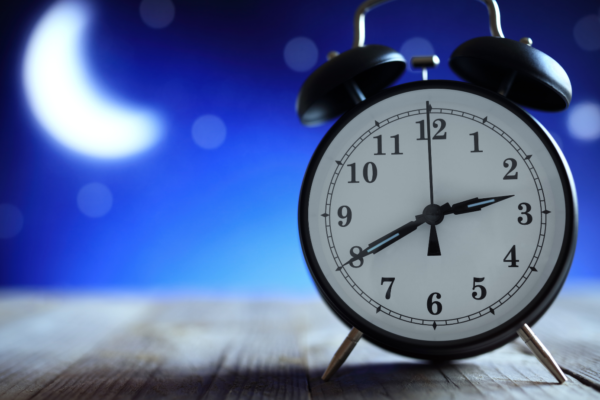Research shows people who regularly sleep five hours or less a night can gain as much as two pounds in a week. One study showed women who slept five or fewer hours were more likely to gain about 30 pounds over time compared to women who slept at least seven hours per night. Poor sleepers are also more prone to obesity-related diseases such as Type 2 diabetes.
Lack of sleep increases snacking on starchy foods
Lack of sleep increases cravings so people snack more frequently, particularly at night—eating on average an extra 300 calories a day. The sleep-deprived also tend to eat a small breakfast and choose high-carbohydrate snacks, undoubtedly for that quick energy fix, both of which lead to blood sugar imbalances and weight gain.
As one would expect, study subjects who sleep seven or more hours per night also exercise more, and thus burn more calories, while sleep deprivation prevents you from burning calories efficiently. One study of men showed sleep-deprivation reduced general energy expenditure by 5 percent, and reduced energy expenditure after meals by 20 percent. In other words, being tired slows your body’s metabolism down.
Sleep deprivation increases hunger and promotes fat storage
One of the more profound ways lack of sleep promotes weight gain is by influencing the hormones that control hunger and satiety. For instance, chronic sleep deprivation raises levels of the stress hormone cortisol. Cortisol tells the body it needs more energy to meet the demands of stress, which causes an increase of hunger and cravings.
Lack of sleep also increases grehlin, a hormone that promotes hunger and fat storage. In fact, one study showed that although dieters could lose weight while sleep deprived, they lost about a third of the weight compared to the healthy sleepers. Researchers believe this is due to grehlin’s fat storing actions.
Sleep deprivation also decreases leptin, the satiety hormone that tells you when you’ve had enough to eat. So in a double whammy, lack of sleep both increases hunger and inhibits the ability to feel full. The result is a natural inclination to eat more, and more frequently. Adding insult to injury is that the body burns most of its calories during REM, the deeply restful stage of sleep when you dream. Unfortunately, weight gain due to sleep deprivation doesn’t only happen slowly over time. Research shows just a few nights of sleep deprivation can pack on pounds.
Lack of sleep promotes insulin resistance
Sleep deprivation makes fat cells less sensitive to insulin, the hormone that ushers glucose into cells so they can produce energy. In effect, it makes a person more insulin resistant, which is a stepping-stone to obesity and diabetes. After depriving subjects in their twenties of sleep, researchers said their fat cells behaved like those of someone 20 years older. Sleep deprivation promotes weight gain in people of all ages, including children. Although sleeping more may not necessarily cause you to lose unwanted pounds, getting adequate sleep is a vital component to any weight loss program. One thing you can do is to listen to calming music to promote relaxation and deep sleep.




